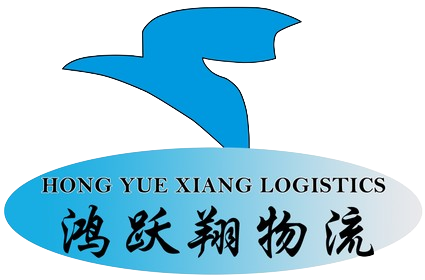Wirksame Planung der Importlogistik
Verständnis der Importlogistik
Importe Logistik ist der umfassende Prozess der Planung, Umsetzung und Kontrolle des effizienten Waren- und Dienstleistungsflusses von ausländischen Lieferanten zu lokalen Zielen. Dieser Prozess umfasst eine Vielzahl von Tätigkeiten, darunter das Management von Transport, Lagerhaltung, Zollabfertigung und Bestandskontrolle. Eine effiziente Importlogistik ist ein entscheidender Bestandteil der Lieferkette, der durch Optimierung der Transportwege und Verzögerungen erheblich Kosten senken kann. Darüber hinaus verbessert sie die Lieferzeiten durch die Rationalisierung der Abläufe und erhöht so die allgemeine Kundenzufriedenheit. Eine nahtlose Importlogistikstrategie stellt sicher, dass Unternehmen ihre Nachfrage rasch erfüllen, was im heutigen globalisierten Markt besonders wichtig ist.
In den letzten Jahren haben Statistiken die zunehmende Komplexität der globalen Lieferketten hervorgehoben. Laut Studien berichten über 80% der Unternehmen, dass Störungen in der Lieferkette eine anhaltende Herausforderung darstellen, was die Notwendigkeit eines robusten Importlogistikmanagements unterstreicht. Da Unternehmen versuchen, Risiken zu mindern und ihre Dienstleistungserbringung zu optimieren, ist ein starker Rahmen für die Importlogistik unerlässlich. Ein solcher Rahmen stärkt nicht nur die Lieferkette, sondern bereitet Unternehmen auch darauf vor, sich schnell an die dynamischen Anforderungen des globalen Marktes anzupassen, was die Bedeutung einer geschickten Importlogistik in der heutigen vernetzten Welt verstärkt.
Schlüsselkomponenten des Importlogistikmanagements
Luftfracht: Warum sie für Importe unerlässlich ist
Luftfracht ist eine der schnellsten Methoden für den internationalen Versand, weshalb sie für zeitlich sensible Lieferungen von entscheidender Bedeutung ist. Industriezweige wie die Pharmaindustrie sind aufgrund ihrer Fähigkeit, Waren schnell und zuverlässig zu liefern, stark auf Luftfracht angewiesen. Wenn zum Beispiel dringend medizinische Versorgung benötigt wird, sorgt die Luftfracht dafür, dass sie pünktlich ankommt und damit keine Störungen bei den Gesundheitsdiensten auftreten. Trotz höherer Kosten im Vergleich zu anderen Transportmethoden unterstützt die Luftfracht die Agilität der Lieferkette und bietet die für die Aufrechterhaltung der Betriebseffizienz und die Erfüllung strenger Fristen erforderliche Geschwindigkeit.
Seefracht: eine kostengünstige Lösung
Die Seefracht wird als wirtschaftlichere Wahl für den Transport großer Gütermengen, insbesondere für nicht verderbliche Güter, angesehen. Sie spielt eine wichtige Rolle bei der Verbindung der weltweiten Handelswege, da ein erheblicher Anteil der weltweiten Einfuhren über das Meer verläuft. Faktoren, die die Seefrachtpreise beeinflussen, wie z. B. Treibstoffpreise und Hafengebühren, können sich auf die Logistikkosten auswirken, aber die Fähigkeit, Großtransporte effizient zu verwalten, ist nach wie vor unübertroffen. Durch das Verständnis dieser Dynamik können Unternehmen die Seefracht für kostengünstige und effiziente internationale Schifffahrtslösungen nutzen.
Kurierdienstleistungen: Schnellleiter für dringende Lieferungen
Die Kurirdienste sind unerlässlich, um die schnelle Lieferung kleiner Pakete, insbesondere in städtischen Gebieten, zu gewährleisten. Diese Dienstleistungen haben sich zu einer Reihe von Liefermöglichkeiten entwickelt, einschließlich der Dienstleistungen am selben Tag und am nächsten Tag. Die beliebten Kurierdienste verändern die Erwartungen der Verbraucher, insbesondere mit dem Aufstieg des E-Commerce. Kunden erwarten nun schnelle Abwicklungen und Echtzeitverfolgung, was Kurierdienste zu einem wichtigen Bestandteil des Logistik-Toolkits für Unternehmen macht, die die Kundenzufriedenheit steigern und in einem digitalen Markt effektiv konkurrieren möchten.
Rationalisierung des Importlogistikprozesses
Planung Ihrer Logistikstrategie
Die Entwicklung einer umfassenden Logistikstrategie ist entscheidend, um die Geschäftsziele und die Marktnachfrage zu erfüllen. Eine gut geplante Strategie hilft, Risiken zu mindern, Kosten zu senken und pünktliche Lieferungen zu gewährleisten. Werkzeuge wie SWOT-Analysen können die Stärken und Schwächen der aktuellen Logistikbetriebe identifizieren und so die notwendigen Erkenntnisse für strategische Verbesserungen liefern. Der Schlüssel liegt in der Umsetzung bewährter Verfahren, die eine kontinuierliche Verbesserung und Anpassungsfähigkeit hervorheben, insbesondere bei ständig wechselnden Einfuhrvorschriften.
Die richtigen Spediteure wählen
Spediteure spielen eine wichtige Rolle bei der Erleichterung der Einfuhr durch die Verwaltung komplexer Logistikvorgänge. Die Auswahl des richtigen Spediteurs beinhaltet die Bewertung von Kriterien wie Erfahrung, Netzwerkfähigkeiten und Kundenservice-Messwerte. Die Gutachten von Experten unterstreichen, wie wichtig es ist, enge Beziehungen zu Spediteuren aufzubauen, da dies Vertrauen schafft und die Logistikeffizienz verbessert. Der richtige Partner kann die Feinheiten der globalen Schifffahrt meistern und sicherstellen, dass die Waren sicher und pünktlich ankommen.
Technologie in der Importlogistik
Neue Technologien wie Blockchain, KI und IoT verändern die Importlogistik, indem sie die Verfolgung und das Inventarmanagement verbessern und gleichzeitig die Transparenz fördern. Zum Beispiel sorgt die Blockchain für sichere und unveränderliche Transaktionsprotokolle, während KI Routing und Zeitpläne optimiert. Fallstudien zeigen, dass die Einführung solcher Technologien zu erheblichen Verbesserungen der Logistikbetriebe geführt hat. Die voraussichtliche Zunahme der Technologieinvestitionen in diesen Sektor unterstreicht seine entscheidende Rolle bei der Gestaltung der Zukunft der Importlogistik und macht ihn zu einem wesentlichen Element jeder zukunftsweisenden Logistikstrategie.
Herausforderungen bei der Importlogistik und ihre Überwindung
Fragen der Einhaltung der Vorschriften
Die Einhaltung der Vorschriften ist für Importeure eine große Herausforderung, da sie mit Tarifen, Zollvorschriften und Handelsabkommen zu tun haben. Diese Elemente können in den einzelnen Ländern erheblich variieren und somit den Importprozess noch komplexer machen. Um die Vorschriften einzuhalten, müssen sorgfältig auf die Dokumente geachtet und die örtlichen Gesetze genau verstanden werden. Experten empfehlen, eine solide Compliance-Strategie zu entwickeln, die regelmäßige Audits, Compliance-Schulungen für das Personal und Konsultationen mit Spezialisten umfasst, um kostspielige Strafen und Verzögerungen zu vermeiden. Eine solche Strategie trägt nicht nur dazu bei, einen reibungslosen Einfuhrprozess zu gewährleisten, sondern schützt auch vor unerwarteten rechtlichen Problemen.
Wie man mit unerwarteten Verzögerungen umgeht
Unerwartete Verzögerungen bei der Importlogistik sind häufig und können durch verschiedene Faktoren wie ungünstige Wetterbedingungen, Arbeitsstreiks oder Staus im Hafen entstehen. Um diesen Verzögerungen entgegenzuwirken, ist es von entscheidender Bedeutung, Notfallpläne zu haben. Dies könnte die Ermittlung alternativer Transportwege und die Vertragsabschlussnahme mit mehreren Dienstleistern umfassen. Die Aufrechterhaltung einer proaktiven Kommunikation mit den Interessenträgern ist während solcher Verzögerungen unerlässlich, um die Erwartungen zu bewältigen und mögliche Störungen zu reduzieren. Regelmäßige Aktualisierungen und transparente Kommunikation können dazu beitragen, Vertrauen und Zusammenarbeit aufrechtzuerhalten und die Auswirkungen unvorhergesehener Rückschläge auf die Lieferkette zu mildern.
Kostenkontrolle in der Importlogistik
Die Kostenkontrolle ist ein wichtiger Aspekt der Importlogistik, der von Faktoren wie Versandkosten, Lagerhaltung und Handlingkosten beeinflusst wird. Wirksame Strategien zur Kostenverwaltung umfassen wettbewerbsfähige Ausschreibungen für Schifffahrtsverträge und die Optimierung von Schifffahrtsrouten. Die Nutzung von Branchen-Benchmarks kann einen Rahmen für die Bewertung der Logistikkosten und die Verbesserung der Haushaltsplanung bieten. Durch die Anwendung dieser Techniken wird sichergestellt, dass der Logistikprozess wirtschaftlich rentabel bleibt und der Wettbewerbsvorteil des Unternehmens auf dem Weltmarkt erhöht wird. Die Erforschung von Möglichkeiten zur Kosteneinsparung, wie z. B. der konsolidierten Frachtverkehre, kann auch erhebliche finanzielle Vorteile bringen, ohne die Qualität der Dienstleistungen zu beeinträchtigen.
Zukunftstrends in der Importlogistik
Der Wandel hin zu nachhaltiger Logistik
Die Logistikbranche bewegt sich zunehmend in Richtung Nachhaltigkeit und setzt auf die Verringerung des CO2-Fußabdrucks und die Verwendung umweltfreundlicher Verpackungen. Unternehmen setzen sich ambitionierte Nachhaltigkeitsziele, die nicht nur den Betrieb beeinflussen, sondern auch bei umweltbewussten Verbrauchern ankommen. So wird beispielsweise die Einführung nachhaltiger Praktiken immer häufiger, wobei Statistiken in den letzten fünf Jahren einen Anstieg um 20% der umweltfreundlichen Initiativen in der gesamten Branche zeigen. Dieser Trend unterstreicht die Bedeutung der Integration von Nachhaltigkeit in die Logistik, um den wachsenden Erwartungen von Interessengruppen und Verbrauchern gerecht zu werden.
Auswirkungen des E-Commerce auf die Importlogistik
Der Aufstieg des E-Commerce hat die Importlogistik erheblich beeinflusst und Anforderungen an schnellere Lieferzeiten und effiziente Umkehrlogistikprozesse geschaffen. Da die Einfuhren von E-Commerce in den letzten Jahren um 30% gestiegen sind, stehen die Logistiksysteme unter zunehmendem Druck, sich anzupassen und zu optimieren. Die Anbieter müssen ihre Flexibilität und Anpassungsfähigkeit verbessern, um die Unternehmen des elektronischen Handels effizient bedienen zu können, und sicherstellen, dass sie den hohen Erwartungen einer nahtlosen und schnellen Lieferung gerecht werden können. Diese Anpassungsfähigkeit ist entscheidend, um in einer Branche, die sich aufgrund der Ausweitung des digitalen Handels rasch entwickelt, wettbewerbsfähig zu bleiben.
Technologische Innovationen in der Importlogistik
Technologische Innovationen revolutionieren die Importlogistik, wobei Fortschritte wie Drohnen und automatisiertes Lager führen die Ladung. Diese Technologien erhöhen die Betriebseffizienz und minimieren menschliche Fehler und vereinfachen so die Logistikprozesse. Prognosen zeigen, dass innerhalb des nächsten Jahrzehnts mehr als 50% der Logistikunternehmen Automatisierungstechnologien einsetzen werden, um wettbewerbsfähig zu bleiben. Diese Innovationen versprechen eine Zukunft, in der die Logistikbetriebe nicht nur schneller, sondern auch zuverlässiger und kostengünstiger sind und damit die Weg für eine neue Ära der Logistik des Welthandels ebnen.

 EN
EN
 AR
AR
 FR
FR
 DE
DE
 PT
PT
 RU
RU
 ES
ES
 TR
TR


